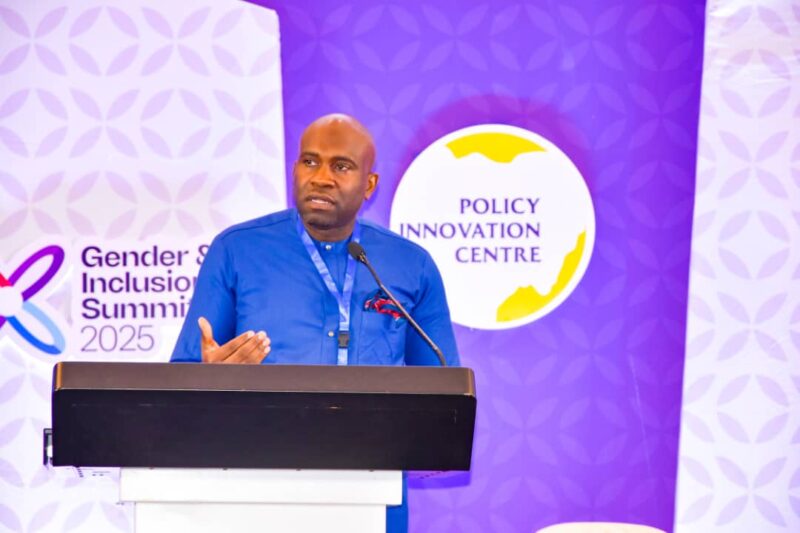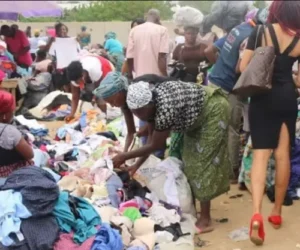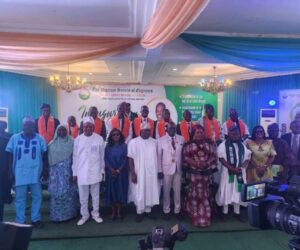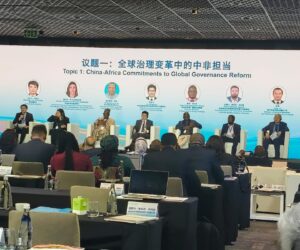By Oluwafunke Ishola
The Gates Foundation has urged Nigerian leaders to accelerate action on gender equality goals by moving from policy launches to real delivery for women and girls.
The foundation emphasises that Nigeria’s development success hinges on translating policies into tangible actions that benefit women to achieve common goals in women’s health and inclusive economic growth.
Ekenem Isichei, Deputy Director of Programme Advocacy and Communications (PAC) at the Gates Foundation, made the call during his keynote address at the 2025 Gender and Inclusion Summit organised by the Policy Innovation Centre (PIC), Abuja.
The summit with the theme: “New Voices and New Approaches for Accelerating Inclusive Society”, brought together government, private sector and civil society to discuss gender inclusion and its impact on economic growth and development.
Isichei said inclusive growth cannot be achieved unless women are intentionally prioritised in national and state policies, warning that progress made in women’s health and empowerment could stall without stronger institutional delivery and budgetary commitment.
“Our goal is to leverage our knowledge and capital to enable the government to best serve its people to execute on budget commitments for key health innovations, to streamline donor delivery coordination mechanisms, to plan and operationalise national development plans on the state level, and much more.”
He emphasised that the conversation became important at a time when bilateral aid to Nigeria fell by 40 per cent as programmes that intentionally support women’s health or empowerment remained targeted.
Isichei added that funding for maternal and child health dropped by 67 per cent.
“We gather at a time when resources and momentum towards gender equality goals are waning.
“Since we gathered last year, bilateral Official Development Assistance that is aid from a donor country to Nigeria has dropped 40 per cent, and programmes that intentionally support women’s health or empowerment were especially targeted.
“Funding towards maternal and child health in Nigeria dropped by 67 per cent.
“That means that for every three women in your community, two of them will not have access to critical women’s health commodities that they had last year.
“When 70 per cent of Nigeria’s poorest are women, we cannot ignore the unique experiences of women in climbing out of poverty.
“At the Foundation, we have seen the hard evidence that proves that investing in women’s health and women’s economic empowerment has a lasting impact across generations.
“It leads to healthier families, stronger economies, and a more just world,” Isichie said.
He called on national and subnational governments to invest in skills systems and staying power to implement programmes effectively and not just to inaugurate.
“This means institutionalising gender desks, strengthening planning and budget units, and equipping local PHC managers and Gender Officers with the tools and data to lead with impact.”
He also called for dedicated public resources for women, saying gender-responsive budgeting “cannot remain an annual budget exercise.”
Isichei called for clear expenditure targets for women-led MSMEs, which must be protected, disbursed and monitored.
He recalled that the Gates Foundation recently pledged $2.5 billion through 2030 for research and development in women’s health, calling on governments, the private sector, and civil society to co-invest.
Though civil society groups were praised for pushing inclusion into the national conversations and matching urgency with operational clarity, Isichie urged private sector leaders to see inclusion as smart economics rather than charity.
Meanwhile, the chairperson of Nigeria Governors’ Spouses’ Forum (NGSF), Prof. Olufolake Abdulrazaq, reiterated the Forum’s commitment to advancing gender equality and women’s empowerment, pledging stronger interventions to dismantle systemic barriers.
Abdulrazaq said that various state-level reforms are already underway, stressing that Kwara State has signed a 35 per cent gender inclusion bill into law.
She added that 10 states now grant six months of maternity leave to working mothers.
According to her, several states, including Imo, Ogun, and Ekiti, have female deputy governors, with Kwara reporting 50 per cent female representation in its cabinet.
Such measures, Abdulrazaq said, signal progress toward reshaping governance and leadership representation in Nigeria.
In another remark, the Second Deputy Governor, Central Bank of Ghana Matilda Sante-Asiedu said true progress extends beyond economic growth, as it is rooted in inclusion and representation for all.
Gender equity, she said “is not a moral responsibility but strategic for building societies that are inclusive, resilient and prosperous.
Changing the narrative of inclusion requires transformational thinking and an unconventional approach to doing things.”
She urged all leaders and policymakers to embrace bold ideas and establish institutions that truly reflect the diversity of the African continent. (NAN) (www.nannews.ng)
Edited by Vivian Ihechu








